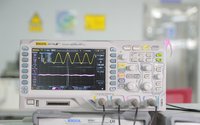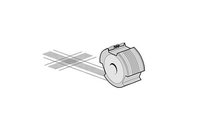Fully understand the key details of EMC testing report application
Date:2024-06-17 10:56:07 Views:2740
In the design and production of modern electronic products, electromagnetic compatibility (EMC) test reports are crucial. To ensure the normal operation of the product in an electromagnetic environment and avoid interference with other equipment, applicants need to pay attention to a series of important details when applying for an EMC test report. From the scope of testing, testing items, testing standards, testing requirements, to qualifications and certification steps, the following will comprehensively introduce these key details.
Detection range:
The scope of EMC testing covers various aspects of electromagnetic compatibility, including two main parts: radiation and conduction. Radiation involves the electromagnetic field generated by the product in its working state, while transmission guidelines include the product's ability to resist external electromagnetic fields. Applicants need to ensure that the product can pass corresponding tests in both aspects.
_20240617104230_635.jpg)
Testing items:
When applying for an EMC test report, the applicant needs to specify the specific testing items that the product needs to undergo, such as radiation testing, conduction testing, voltage waveform testing, radio frequency interference testing, etc. For different product types and uses, different testing projects may be required, so applicants need to communicate fully with the testing laboratory to clarify testing requirements.
Testing standards:
The applicant needs to determine the electromagnetic compatibility standards that the product needs to comply with, such as European EN standards, American FCC standards, international CISPR standards, etc. Different regions and industries may have different standard requirements, and applicants need to choose the applicable standards based on the sales market and purpose of the product.
Testing requirements:
In addition to determining the testing items and standards, applicants also need to understand the specific requirements during the testing process, including the preparation of test samples, requirements for the testing environment, requirements for testing equipment, etc. These requirements will directly affect the accuracy and reliability of test results, and applicants need to fully understand and prepare corresponding materials and equipment before testing.
Qualification and certification steps:
Finally, applicants need to choose a qualified and reputable testing laboratory for testing. Ensure that the laboratory has relevant certifications and qualifications, and is able to provide testing equipment and professional testing personnel that comply with international standards. When selecting a laboratory, applicants also need to understand the certification steps for the test report to ensure that the final test report can be internationally recognized.
The details mentioned above are crucial when applying for an EMC test report. Applicants need to pay attention to these key details in the preparation of application materials, selection of laboratories, and supervision of the testing process to ensure obtaining a true and reliable test report, thereby ensuring the quality and market competitiveness of the product.




 Weixin Service
Weixin Service

 DouYin
DouYin
 KuaiShou
KuaiShou





















